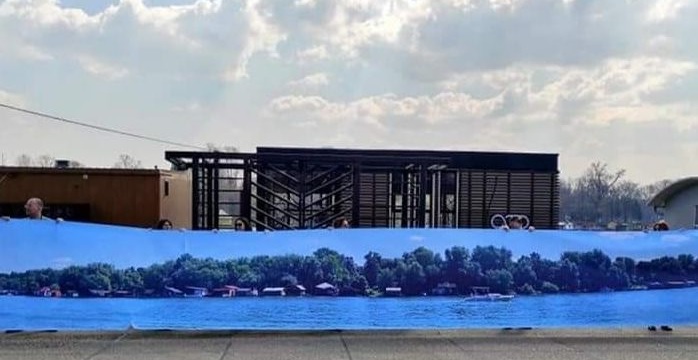Waterscape Politics in Urban Contexts Lecture
Prof. Čedo Maksimović (ICL) will give a lecture within the Waterscape Politics in Urban Contexts seminar, organized by the Institute for Philosophy and Social Theory, University of Belgrade, taking place on May 20th, starting at 11 AM CET at the Center for Cultural Decontamination in Belgrade. Prof. Maksimović will present the concept and the initial outcomes of the euPOLIS project.
Photo: Sanja Iguman

Waterfront developments have become a dominant theme of urban regeneration globally when it comes to urban regeneration of cities. Rivers represent a great resource for investment, both in cultural and natural sense. Indeed, residential areas close to river banks have always been attractive for citizens, therefore interesting for both investors and buyers. Due to the strong impact of some of these activities during the process of urbanization, urban rivers have become extremely anthropized spaces, and quite often seriously endangered by the same process of anthropization, so that people and animals around them do not benefit from the river presence anymore, especially when they are extremely polluted.
Four speakers of this seminar will present good and bad examples of treating urban water(front)s that will be crossed in discussion afterwards:
1. Water commons in Serbia are very endangered by pollution, privatization and unsustainable exploitation. Right to Water initiative is committed to protecting and preserving the environment, especially watercourses, springs, healing waters, lakes and groundwater. The right to water is the right to life.
2. In Buenos Aires, the promenade and the riverside are indistinguishable. River waters and Sea waters mix underneath a few wooden walkways, leading to the Reserva Ecológica Costanera Sur. Today, this place is unexpectedly rich in fauna and flora, considering its liminal location: in front of the most intensely polluted, built up and busy area of the Buenos Aires urban coast. Its present condition summarizes anthropocenic and unexpected side effects of the urban policies of the Argentine dictatorship of the 1970s.
3. The third speaker`s contribution will vary from light-touch tactical interventions to enhance waterfront animation and vitality to large scale completed masterplans. The case studies presented will focus on how such projects have benefitted their host cities and rivers ecologically, socially and economically. The examples will demonstrate how cities have reoriented themselves towards their rivers in post-industrial times with consideration of the inclusivity of the places that have been designed and developed.
4. Integrated system of urban planning for the cities of the future is based on innovative paradigm called Blue Green Solutions. Its methodology analysis and optimizes benefits for interactions of the relevant environmental and technical systems, by focusing on water (blue component) and vegetated areas (green one). It also tackles the needs for adoption of these principles in upgrading the “enabling environment”: socio-economic and political framework. This methodology will be demonstrated on the concepts and initial results of two EU Horizon 2020 projects.
Zaklina Zivkovic is a researcher and executive director of the organization for political ecology Polekol and an activist of the Right to Water initiative, by education political scientist with 10 years of experience in policy areas like environmental and nature protection, climate change and just transition.
Dr. Elena Bougleux has a PhD in Theoretical Physics, but also degrees in Theater Directing and Cultural Mediation and Gender Studies. Elena’s research focuses on the Anthropology of Science, on the Theory of Complexity in Social Sciences, and on the Epistemological implications of processes of Knowledge Construction in a multicultural, comparative, and qualitative perspective. She has been involved in the Anthropocene Curriculum Project since 2013. Her fields of applied research are Anthropology of Science, Environmental Anthropology, Urban Anthropology, Sustainability and Climate Change Studies. She teaches Cultural Anthropology at the University of Bergamo.
Dr. Neil Galway, doctor of Environmental Planning and the Director of Postgraduate Studies in Planning in the School of the Natural and Built Environment, which involves coordinating the MSc Planning and Development and MSc City Planning and Design programs.
He previously worked as a chartered town planner for Belfast City Council and DOE Planning Service. His current research interests include: planning for inclusive places; critical heritage studies; and planning policy and practice.
Prof. Dr. Cedo Maksimovic is a doctor of engineering sciences, currently working as Emeritus Professor of Water and Environmental Systems at the Imperial College London. His basic research is in the applied Fluid Mechanics and Hydraulics of the urban water infrastructure systems. As one of the world’s leading experts in the field of urban water, he made a key contribution to urban water becoming a new scientific discipline, first in the UK and Europe, and then elsewhere. In the current decade, he has expanded his field of professional and scientific activities to the interactions of urban water system and “green” infrastructure as key paradigm of the “blue-green solutions- -BGS”. The concept of BGS is further customised in two EU H2020 projects: euPOLIS and HEART which will be introduced in this Seminar.
You can join by registering HERE.
